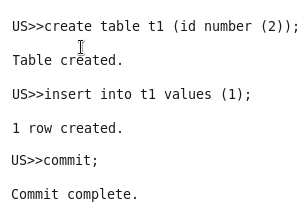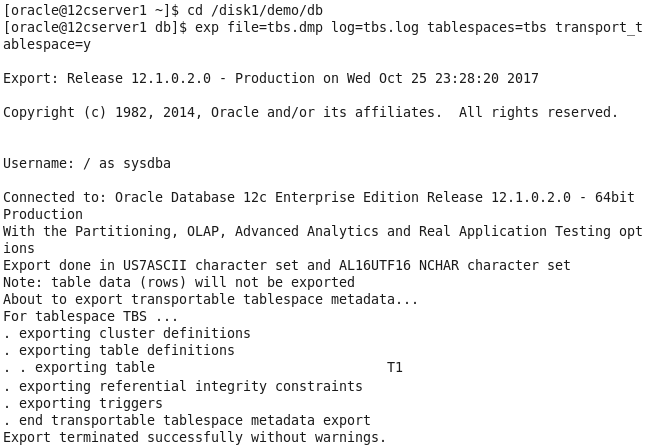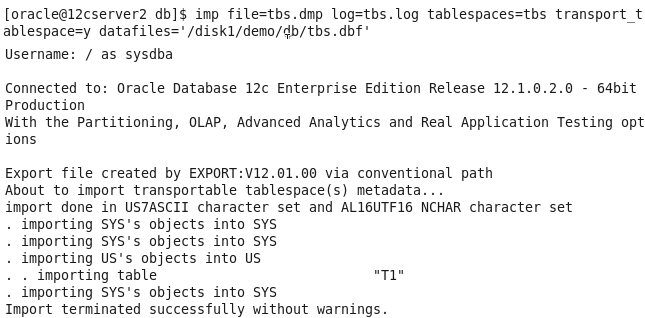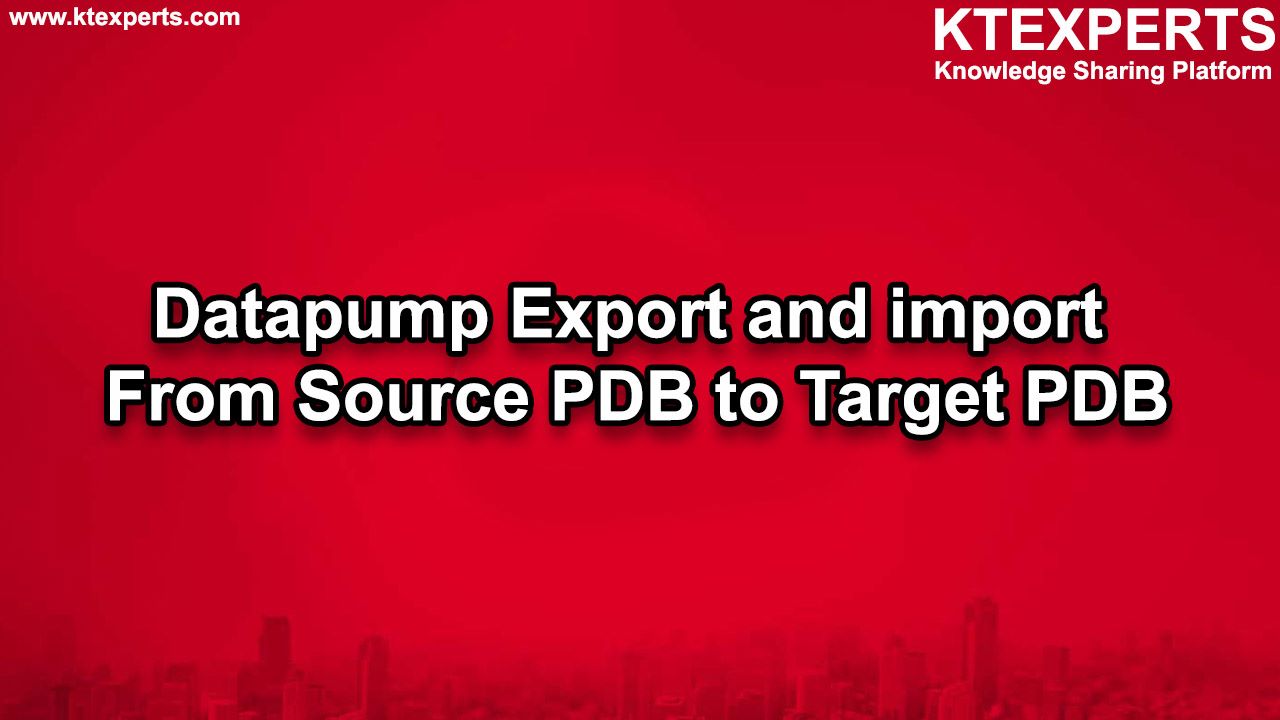TRANSPORTABLE TABLESPACE IN ORACLE
Transportable Tablespace is used to move large amount of data between databases where the tablespace is copied from source database to the target database.
TRANSPORTABLE BACKUPS:
- It is introduced in version 8i
- This backup is copying the whole tablespace from one DB to other along with the data
- This allows DBA to quickly copy n no of files from one DB to other.
- In version 8i, target database o/s and source database o/s must be same.
- In version 9i, oracle started supporting multi block size at tablespace level.
- In version 10g, oracle started supporting multi block size and multiple o/s.
Several different scenarios that can utilize transportable tablespace include:
- Restoring an unrecoverable database
- Migrating to a different OS.
NOTE: The tablespace name in the target database cannot have the same name in source database.
FIGURE :
Segments present under system tablespace and any objects present in SYS cannot be transported because it contains all users, privileges, PL/SQL procedures.
Limitations:
- It should not contain sys owned objects, temp segments, undo segments, dependent objects.
- If any violations are found we need to drop or remove violations then only we can do transportation.
Package of dependent objects under particular tablespace = exec dbms_tbs_transport_set_check;
Package of dependents info stored under database objects (gives the reference of the objects in the tablespace to be transported) = transport_set_violations;
EXAMPLES ON TRANSPORTABLE TABLESPACE:
- Create tablespace tbs
- Create user us and grant privileges to it:
- alter the user us to set tablespace tbs as default tablespace:
- Now connect to user us:
- Create table t1 to user us and insert values into it:
- Connect to sys user and check whether dependencies are present or not:
Package of dependent objects present under particular tablespace= exec dbms_tts.transport_set_check(‘TBS’)
- Check whether any violations are present:
Package of dependent objects present under database objects= transport_set_violations
If any dependencies are present, then drop and execute.
- alter tablespace to read only mode assuming no violations are present:
- export the tablespace tbs metadata using exp utility:
- Now on the client side perform import operation using import utility:
- Switch the tablespace to read write mode:
- Now check the tablespace is available at client side:















